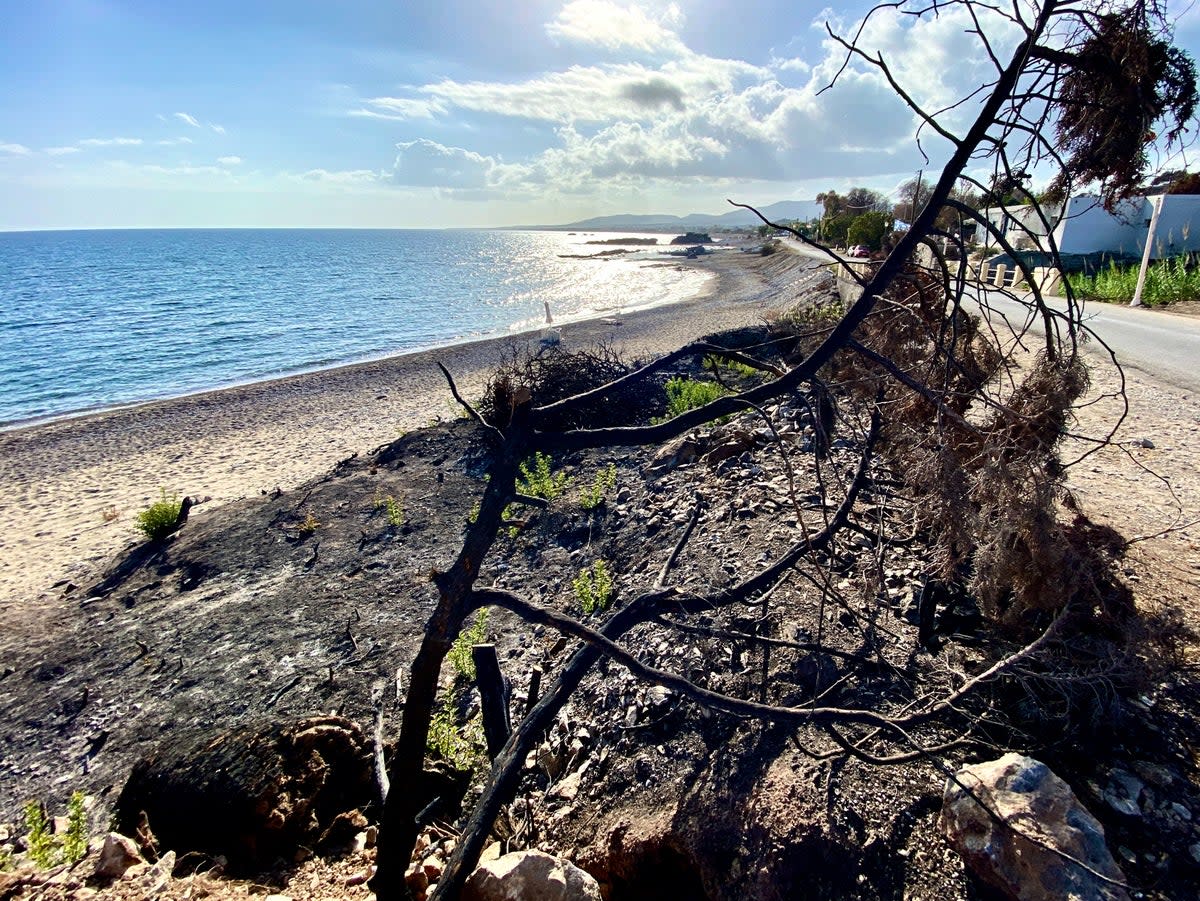Cyprus and Greece extreme heat: What the wildfires and high temperatures could mean for your holiday

As the main summer holiday season begins, the eastern Mediterranean is experiencing extreme temperatures – together with the outbreak of wildfires in western Cyprus.
High temperatures, typically reaching 43C in Cyprus, are expected to continue through the weekend.
Firefighters are struggling to respond to a blaze near the popular resort of Paphos, with high winds and tough terrain making the fire difficult to control. Specialist teams have flown in from Greece and Jordan.
Some inland villages have been evacuated and roads closed, with concern that smoke could disrupt Paphos airport – though this has not happened so far.
Further east, the Greek mainland and islands are once again experiencing extreme heat, with particular concern about the effects of high temperatures on vulnerable local residents and travellers.
Last July, around 20,000 holidaymakers were evacuated from Rhodes due to severe wildfires.
These are the key questions and answers.
What is happening?
The Department of Meteorology in Cyprus has issued an “extreme maximum temperature warning” for Friday 14 June 2024. It warns that the inland maximum temperature is expected to rise as high as 44C, with a temperature of 34C even in the mountains.
An “orange weather warning” is in place from 11am to 5pm.
The Greek Met Office has also issued an emergency weather bulletin, warning of temperatures of up to 43C in the eastern Peloponnese and up to 42C in Crete and the Dodecanese islands. Athens could reach 42C.
Is it safe to go to the region?
For most travellers who take steps to stay in the shade, avoid direct sunshine during the day, and maintain hydration, there is no particular reason not to travel.
The UK government highlights travellers who are particularly vulnerable:
older people aged over 65 years
people with underlying health conditions, particularly heart problems, breathing problems, dementia, diabetes, kidney disease, Parkinson’s disease or mobility problems
people who are already ill and dehydrated (for example from stomach ailments)
Any Foreign Office warnings?
On Cyprus, the Foreign Office says: “Wildfires are dangerous and unpredictable. Take care when visiting or driving through woodland areas.”
For Greece, the official advice is: “Be cautious if you are in or near an area affected by wildfires. You should:
follow the guidance of the emergency services
call the Greek Emergency Services on 112 if you are in immediate danger
contact your airline or travel operator who can assist you with return travel to the UK”
Does that mean holidaymakers are being evacuated?
No. Exactly the opposite. At Heraklion, the main airport of Crete, dozens of planes are flying in on schedule from the UK and other western European nations on Friday.
The same applies at Paphos airport. The visitors will certainly feel the heat when they step off the aircraft, but there is no disruption at present. Roads to all the key resort locations remain open.
But parts of Cyprus are off limits?
Yes, but it is unlikely that tourists will be directly affected by the closures.
I am anxious about travelling to the region. Can I cancel without penalty?
Probably not. Under the Package Travel Regulations, holidaymakers can cancel for a refund “if unavoidable and extraordinary circumstances occur at the place of destination or its immediate vicinity which significantly affect the performance of the package or the carriage of passengers to the destination”.
The high temperatures and localised wildfires do not (yet) constitute “unavoidable and extraordinary circumstances” that could affect holidays.
Usual terms will apply: for imminent departures, cancellations are likely to result in the loss of the total cost of the holiday. It can, though, be transferred to other people for a nominal fee.
Holiday companies may also be prepared to show some flexibility, with the option to switch to destinations where they have spare capacity.
Will travel insurance help?
Possibly, if you have declared a pre-existing medical condition that would clearly be exacerbated by the unusually hot weather.
Would you travel to the region?
Yes, if I had a booking – though I prefer to visit the eastern Mediterranean in April, May, September and October.


